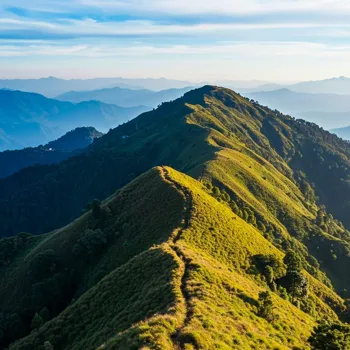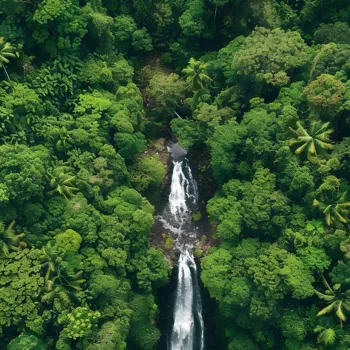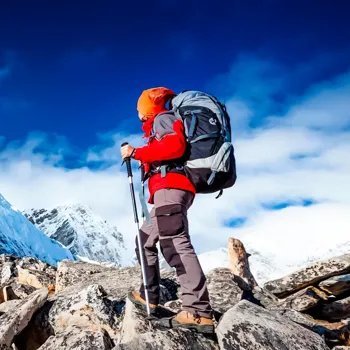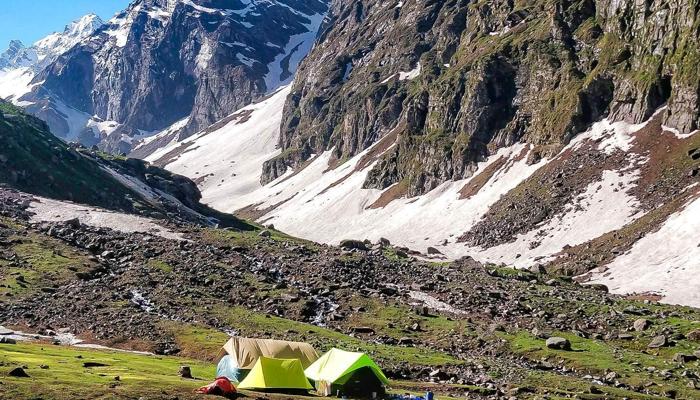Unveiling India's Hidden Charms: Remote Travel Tips. Dive into a world of authenticity and natural beauty
India, a land of vibrant culture and breathtaking landscapes, holds many hidden gems in its remote
corners. Traveling to these less-explored destinations can be an incredibly rewarding experience, offering a glimpse into authentic Indian life and unparalleled natural beauty.

However, venturing off the beaten path requires careful planning and preparation. This article provides essential tips to ensure a safe, comfortable, and enriching journey to India's remote destinations.
Meticulous planning essential for smooth travel experience
Before you even start packing your bags, meticulous planning is absolutely crucial. Start by researching your chosen destination thoroughly. Understand the local customs, traditions, and social etiquette.

Knowing the basics of the local language, even a few simple greetings, can go a long way in building rapport with the community. Check the accessibility of the location and consider the best mode of transport.
Remote areas often have limited connectivity, so download offline maps and translation apps on your phone. Share your detailed itinerary with family or friends, including contact information for your accommodation and local guides and set up daily check-in times.
Make copies of crucial documents such as your passport, visa, and travel insurance, and store them separately from the originals. Planning ahead minimizes the chances of unforeseen difficulties and ensures a smoother travel experience.
It's not just about booking a ticket; it's about understanding the place you are going to and being respectful of its culture. This also involves researching any potential hazards, weather patterns, and health risks associated with the area.
Being well-informed allows you to anticipate challenges and be adequately prepared for them.
Pack strategically for remote travel: essentials, clothing, shoes, first aid, electronics, cash
Packing strategically is another crucial aspect of traveling to remote areas. Unlike bustling cities where you can easily find anything you need, remote locations often have limited resources. Therefore, packing essential items is important.

Firstly, focus on comfortable and versatile clothing suitable for different weather conditions. Layers are your best friend, consider lightweight and quick-drying fabrics. Pack sturdy walking shoes or trekking boots suitable for uneven terrain.
Ensure you have a basic first-aid kit with essential medications, antiseptic wipes, bandages, pain relievers, and any personal prescriptions. Carry a portable charger or power bank to keep your electronic devices running, since electricity might be unreliable.
A reusable water bottle is a must-have for staying hydrated. A headlamp or flashlight can be incredibly useful, especially if you are planning outdoor activities or if there are power outages at night. A small toolkit and multi-tool knife can be useful for minor repairs.
Finally, carry enough cash in smaller denominations since digital payments might not be widely accepted. Packing efficiently and thoughtfully ensures you have all the necessary items for a safe and comfortable journey without over packing.
Respect local culture and environment when traveling responsibly
When traveling to remote areas, respect for the local culture and environment is paramount. Remember that you are a guest in their home, and it's crucial to be mindful of their customs and traditions. Dress modestly, especially when visiting religious sites.

Always ask for permission before taking photographs of people, and be sensitive to their reaction. Avoid public displays of affection and refrain from loud or disruptive behavior that could be considered disrespectful.
Learn a few basic phrases in the local language, which can help to build rapport with the community and show your willingness to connect with them. Practice responsible tourism by patronizing local businesses, eating at local restaurants, and buying handicrafts directly from artisans.
Avoid littering and be conscious of your environmental impact. Support ecotourism initiatives and encourage sustainable practices that benefit the local community and help preserve the natural environment.
Remember that your actions have a direct impact on the places and people you visit, strive to travel responsibly and leave a positive footprint.
Stay connected in remote areas with tips on communication strategies
Staying connected in remote areas can be challenging due to weak or non-existent mobile networks. Before you embark on your journey, inform your mobile network provider that you will be traveling to remote areas and inquire about their coverage in those locations.

Download offline maps and translation apps, as mentioned earlier, to access essential information without internet connectivity. Consider getting a local SIM card if you plan to stay for an extended period, this could potentially provide better coverage in certain areas.
Inform family and friends about the potential communication difficulties and set up regular communication windows. A satellite phone can be a useful, though expensive, option for emergencies.
Explore alternative communication methods like satellite messengers like Garmin inReach or Spot X, which can send and receive messages via satellite and also have SOS for emergency purpose. Be aware of the limitations and plan accordingly.
Remember that being disconnected does not mean you are isolated; it allows you to fully immerse yourself in the experience and appreciate the beauty of your surroundings.
Prioritize health and safety in remote areas for a secure trip
Prioritizing your health and safety is paramount when venturing into remote destinations. Before your trip, consult with your doctor about any recommended vaccinations or health precautions for the region you plan to visit.

Carry a well-stocked first-aid kit with essential medications, including pain relievers, antiseptic wipes, bandages, and any personal prescriptions. Drink clean, purified water and avoid consuming food from unreliable sources.
Be cautious of insects and take necessary precautions against mosquito bites, especially in areas prone to mosquito-borne diseases. Inform yourself about local medical facilities and emergency services and keep a list of important contacts, just in case of an unexpected event.
Avoid risky activities, such as swimming in unsupervised waters or trekking alone in mountainous terrain. Be aware of your surroundings and avoid walking alone at night in unsafe areas. Trust your intuition and remove yourself from any situation that makes you feel uncomfortable.
Remember, your personal safety is the most important factor, and careful planning can minimize risks during your journey.
Embrace the unexpected in travel for enriching experiences
Embrace the Unexpected and be open to serendipity. Remote destinations often present unplanned experiences and unexpected encounters. Be flexible with your itinerary and allow yourself to deviate from the plan whenever an opportunity arises.
Embrace the chance to interact with local people, learn about their culture, and share your own experiences. Don't be afraid to try new things, whether it's sampling local cuisine, attending a local festival, or exploring a hidden trail.
Be open to the unexpected challenges that may arise, such as delays, language barriers, or cultural misunderstandings. Approach these challenges with a positive attitude and see them as opportunities for growth and learning.
Remember that the most memorable travel experiences are often the ones that are not planned. By embracing the unexpected and being open to serendipity, you can enrich your journey and create unforgettable memories.

















